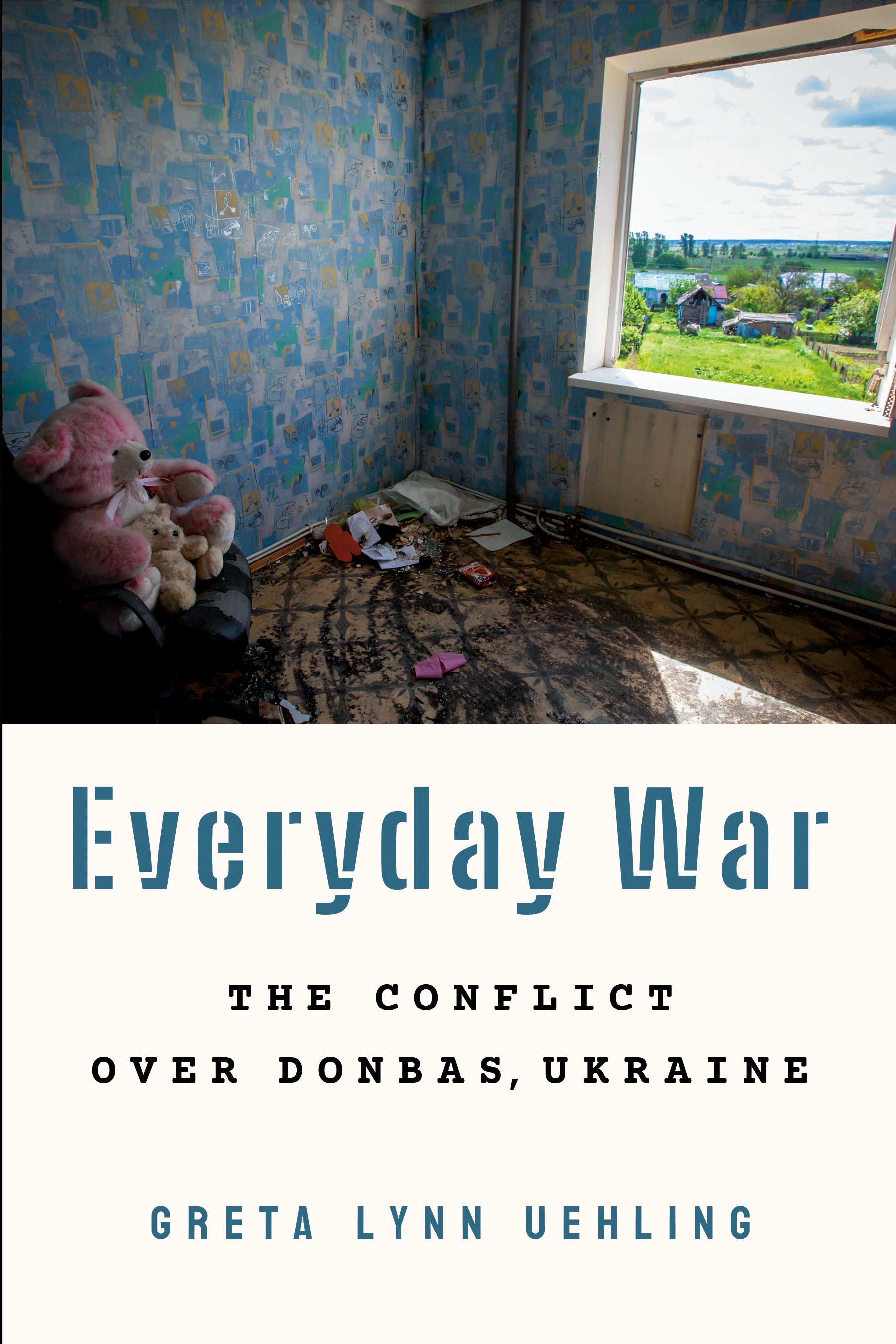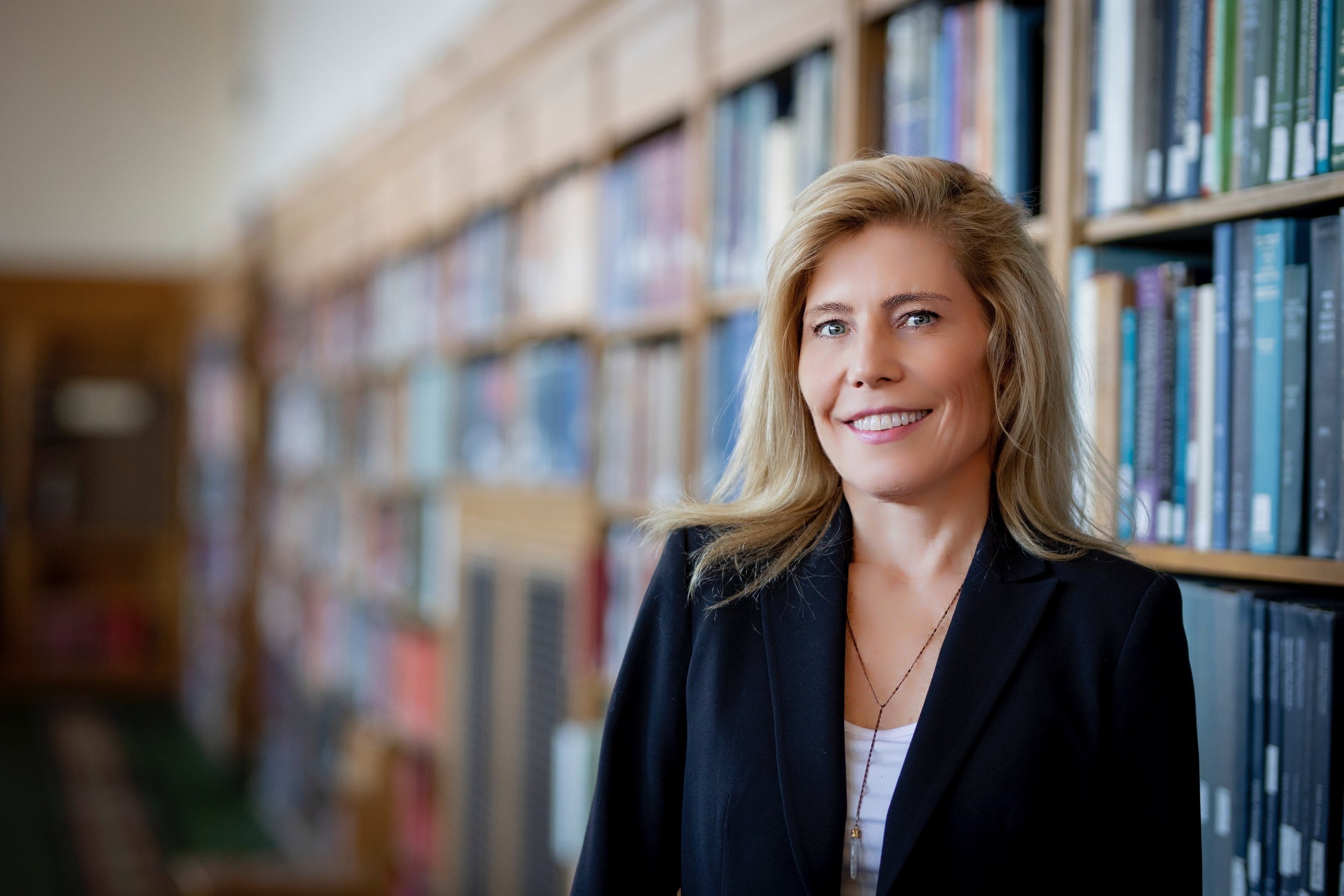Spotlight: Everyday War: The Conflict Over Donbas, Ukraine by Greta Lynn Uehling
/Everyday War provides an accessible lens through which to understand what noncombatant civilians go through in a country at war.
What goes through the mind of a mother who must send her child to school across a minefield or the men who belong to groups of volunteer body collectors? In Ukraine, such questions have been part of the daily calculus of life. Greta Uehling engages with the lives of ordinary people living in and around the armed conflict over Donbas that began in 2014 and shows how conventional understandings of war are incomplete.
In Ukraine, landscapes filled with death and destruction prompted attentiveness to human vulnerabilities and the cultivation of everyday, interpersonal peace. Uehling explores a constellation of social practices where ethics of care were in operation. People were also drawn into the conflict in an everyday form of war that included provisioning fighters with military equipment they purchased themselves, smuggling insulin, and cutting ties to former friends. Each chapter considers a different site where care can produce interpersonal peace or its antipode, everyday war.
Bridging the fields of political geography, international relations, peace and conflict studies, and anthropology, Everyday War considers where peace can be cultivated at an everyday level.
Excerpt
Svetlana’s Kitchen Table
In spite of the bombing taking place on the outskirts of her city, Svetlana sought to create a sanctuary from violence in her home. After all, she had male friends fighting on both sides of the conflict. Svetlana suggested to me over a heaping basket of French fries that the picture most people have of Donetsk is distorted. In spite of the ongoing violence, and regardless of the unscrupulous separatists who became de facto authorities, she argued, daily life continues. Even though the region is marked by ongoing fighting, people still go to school, graduate, get married, celebrate birthdays, and mark anniversaries. To make her point, she told me that while she still lived in the city of Donetsk, men who were enlisted in opposing military forces sat across from each other at her kitchen table. As she explained: “I have two friends in the military, one of them is on one side and the other one is on the other side. But nevertheless, we sit at the same table.”
“Do they talk to each other?” I asked.
“Yes. One gets a salary there in the DNR [the self-proclaimed Donetsk People’s Republic], the other one gets a salary here [in government-controlled Ukraine]. One friend is DNR, and the other one is Ukrainian, he is in the National Guard in the ATO [Antiterrorist Operation] zone. They talk to each other as we do, you and me.”
“And what do they talk about?”
“Well, about everything that is not related to the violent situation. I want to tell you that in my everyday life, even at work I don’t talk about war. I don’t want to, everyone has his own truth, you know.”
In other words, people who drank tea with one another in the evening could be put in a position to kill one another someday. It was, in effect, an interper sonal politics to set aside geopolitics. Considering the conflict’s lethality, this is an enormous feat that goes beyond the cliché of agreeing to disagree.
Buy on Amazon | Audible | Bookshop.org
About the Author
Greta Uehling’s scholarship is broadly concerned with international migration and forced displacement. Major projects have examined the experiences of refugees, asylum seekers, and the internally displaced. Her current project explores the subjective experience of military conflict and forced displacement in Ukraine. Based on ethnographic fieldwork, she documents how the military conflict reconfigured social worlds that became the site of a different, everyday kind of war.
Prior to teaching in the Program on International and Comparatives Studies, Uehling consulted with a number of international organizations including the United Nations High Commissioner for Refugees, the Organization for Security and Cooperation in Europe, and the Watson Institute at Brown University.
Uehling holds a PhD in cultural anthropology from the University of Michigan. In 2004, she completed a post-doctoral fellowship with the Solomon Asch Center for the Study of Ethnopolitical Conflict at the University of Pennsylvania. Her first book is Beyond Memory: The Deportation and Repatriation of the Crimean Tatars. Her newest book is Everyday War: The Conflict over Donbas, Ukraine. She is also the author of numerous scholarly articles and the editor of two edited volumes.

















































